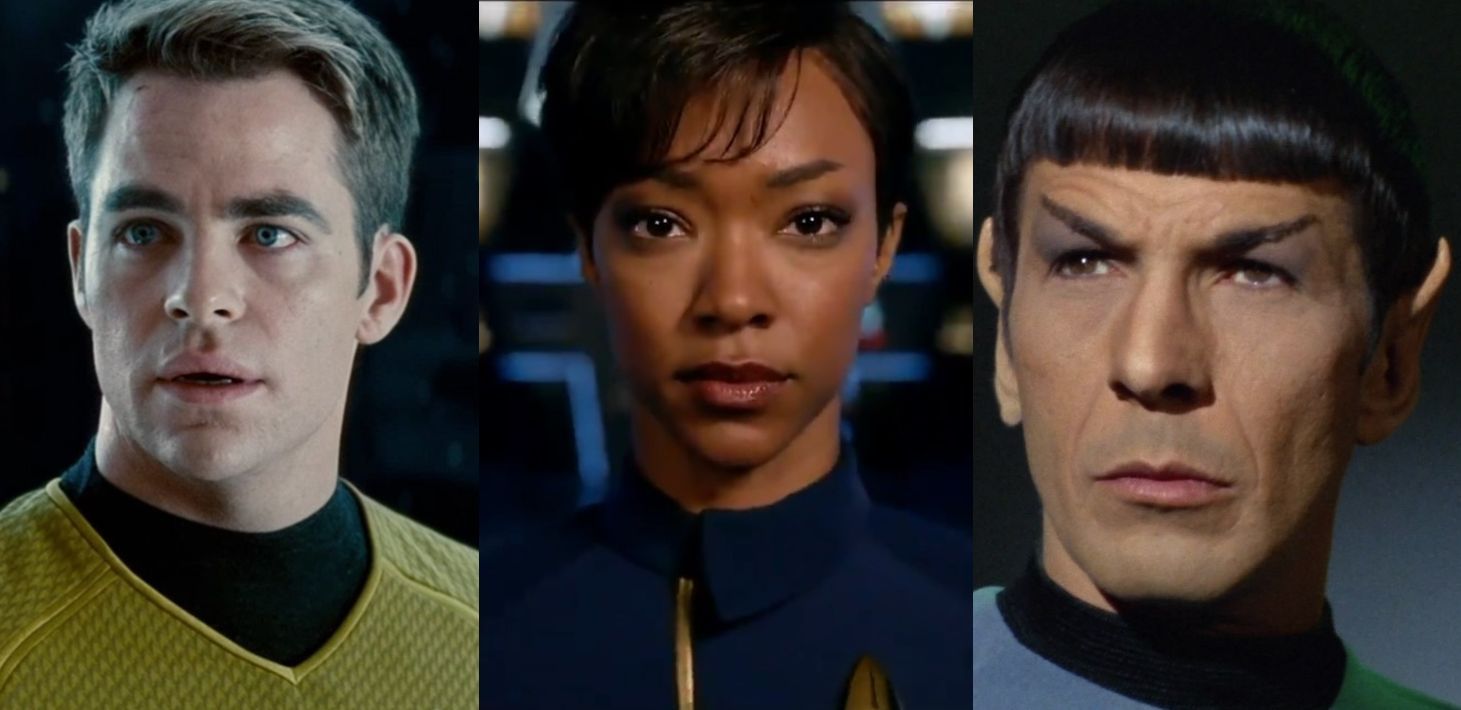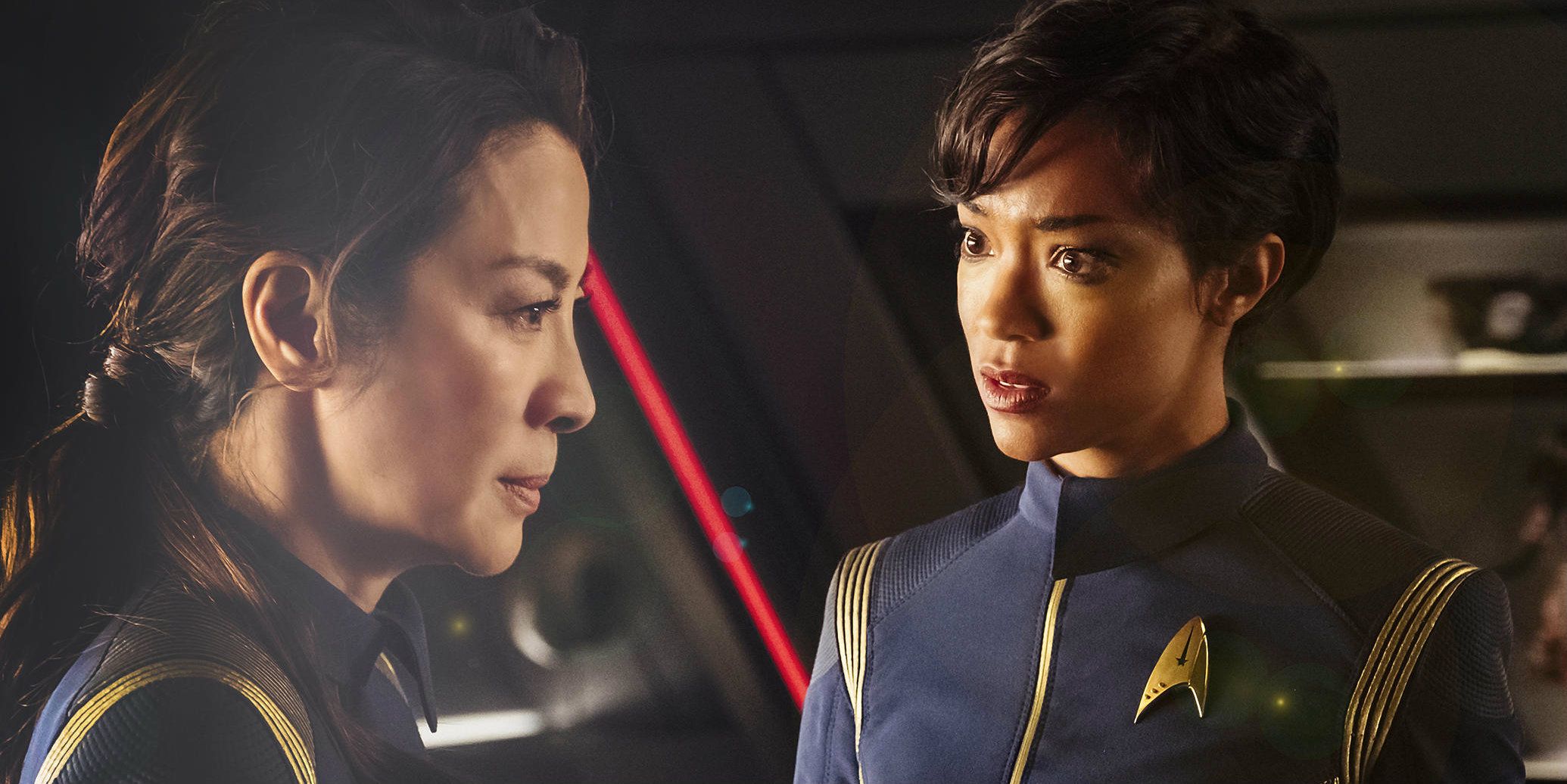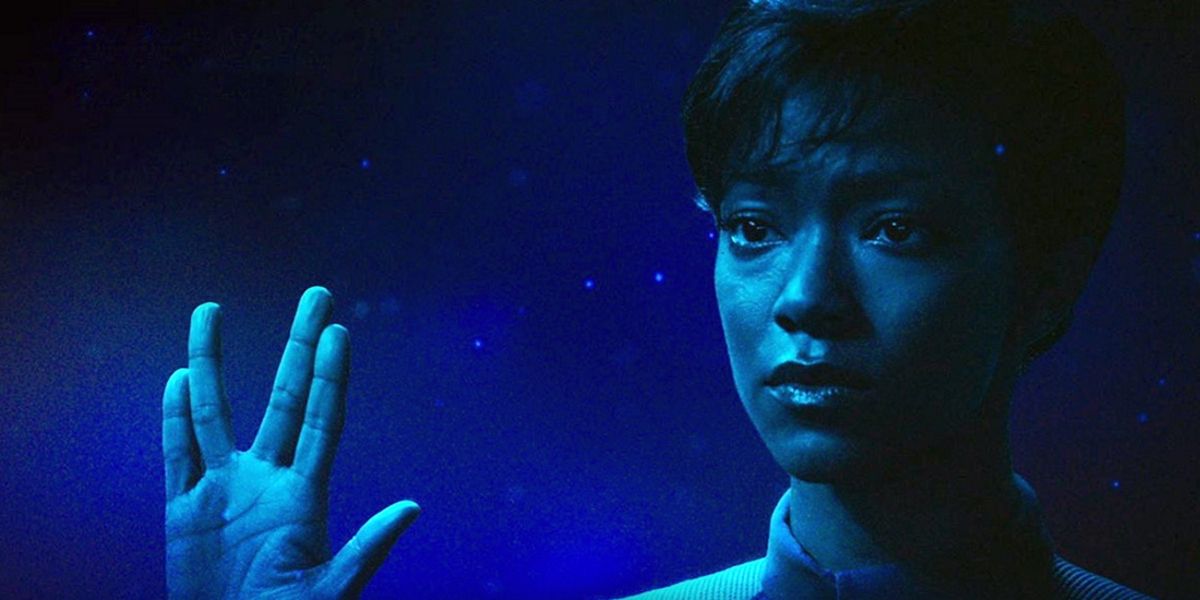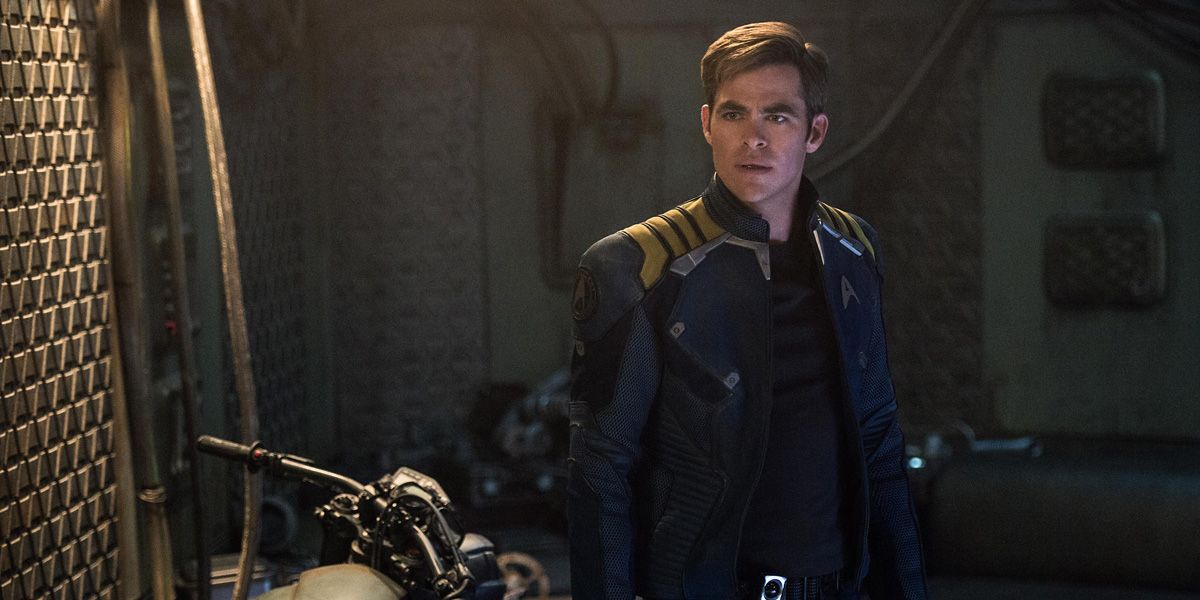Star Trek: Discovery has finally left space dock. The long-delayed, much-anticipated return to Gene Roddenberry's optimistic vision of the future debuted its first episode on CBS, and the second episode immediately followed on the network's nascent streaming service, CBS All Access. Visually dazzling and with a compelling lead in Sonequa Martin-Green's Commander Michael Burnham, Discovery suffered from some typical pilot episode clunkiness, but it definitely has the potential to be a more than worthy entry into the vast Star Trek mythos.
And yet it's possible viewers could be scared off by that vast mythos, fearing they'd be lost in a franchise that consists of over 700 episodes and 13 films. It begs the question: is Discovery a good place for franchise newcomers to begin their Trek fandom?
The answer is yes and no.
Based on its first two episodes, Discovery is not going to be overly reliant on past Star Trek stories. The series is an inbetweenquel, taking place between Star Trek: Enterprise and the original series. It's fit itself into a gap in Star Trek's history that hasn't been explored in any real way outside of non-canonical novels and comics, so there's not a tremendous need for new viewers to understand the history of the Federation or the labyrinthine backstories of long-established characters and conflicts. It's also a Star Trek show that reflects viewers' current tastes in television. The production values are much, much higher than on any previous iteration, and the highly serialized storytelling invokes Game of Thrones more than Voyager. It's a version of Star Trek that's very clearly been calibrated to be consumed by 2017 audiences.
However, that modern calibration is also the root of a strong argument that it's not the ideal entry point into the world of Star Trek. More than virtually any other popular science fiction property, Star Trek is about optimism, and humanity's unquenchable desire to explore and learn. The ability to tell self-contained stories in the unexplored corners of the universe that doubles as a meditation on the very things that define our humanity has been a hallmark of virtually every iteration of the franchise, even the much-maligned misfires like Voyager and Enterprise. Discovery seems to be consciously subverting those expectations, setting the series during an incredibly brutal war with the Klingons, showcasing the franchise's most deeply flawed lead character ever, and eschewing the spirit of exploration to question whether or not Star Trek's optimistic heart can survive in the darkest of days.
That's a perfectly valid setup for a Star Trek story, and even one that's been touched on in other Star Trek shows, but it's a challenging of the bedrock tenets of the franchise, not an example of them.
If potential Discovery viewers are looking for better places to start their Star Trek fandom, there are a few strong entry points, and they're likely not where you'd think.
The original series is, of course, where it all began, but that series is simply from a different era of television. The modest at best production values and wildly varying quality on an episode-to-episode basis would likely be off-putting to rookie viewers. The films featuring the original cast are much more consistent, but also indulge in stories that tend to call back to plots from the original series and don't actually showcase much of the franchise's adventurous spirit. The one exception is Star Trek IV: The Voyage Home, which finds Kirk and friends time traveling to 1986 Earth to retrieve a pair of humpback whales in an effort to save all of humanity. It's a fun, light film that perfectly captures that gonzo energy that defined the original series' best moment, and is an excellent showcase for the original cast.
Star Trek: The Next Generation had a tumultuous start, enduring creative growing pains and a writers strike over its first two seasons. But that show found its footing by its third season, and as its structure consisted almost exclusively of standalone episodes, that third season is the ideal entry point for viewers who want to experience Star Trek firing on all cylinders telling the stories that define it. An HD remaster has made the show a gorgeous watch, and it boasts the best cast in the franchise's history, anchored by Patrick Stewart as the intellectually righteous Captain Jean-Luc Picard and Brent Spiner as the emotionless android Lieutenant Commander Data. The show also established the lion's share of the mythology surrounding the Klingons, who are going to figure heavily into Discovery's story.
Another obvious entry point, much to the chagrin of longtime Star Trek fans, is the J. J. Abrams-produced reboot films, which take place in an alternate timeline from all other Star Trek iterations, including Discovery. Star Trek Beyond, in particular, showcases the adventurous spirit of the original series, with decidedly higher production values. Stranded on an alien planet after the destruction of the Enterprise, Captain Kirk and his crew still manage to learn about new civilizations and species, defeating their enemy and bettering themselves in the process.
And while Deep Space Nine is not exactly a seamless entry point into Star Trek lore, it is a surprisingly compelling watch as a companion piece to Discovery. Set on a remote space station, Deep Space Nine was Star Trek's first flirtation with both serialized storytelling and more morally grey characters. Like Discovery, it also featured a non-captain, non-white lead character in Commander Benjamin Sisko, the most complicated man to headline a Star Trek series up to this point. TNG largely set up the mythology of the Klingons, but DS9 massively expanded it, further exploring the politics of the myriad Klingon houses that are going to factor heavily in Discovery. And while every iteration of Star Trek touches on social and political issues, Deep Space Nine feels incredibly timely, with its exploration of religious persecution, racial supremacists, and morally compromised leaders in the aftermath of a horrific war between the Bajorans and Cardassians. These are all themes Discovery seems likely to tackle as well.
None of this should be viewed as required viewing to understand Discovery. The series is going to be perfectly watchable on its own. But it's unquestionable that the show will mean more to viewers who understand where Star Trek has been before, and how past versions have commented on Roddenberry's original utopian vision of humanity. Star Trek is a vast ocean of storytelling; how you experience it depends on how deep you're willing to dive into it, but the water's fine in the shallow end too.




